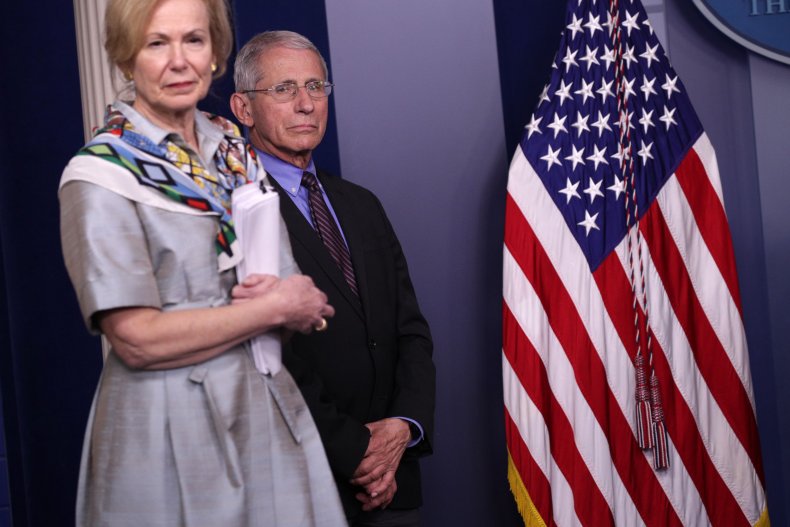Top infectious disease expert Dr. Anthony Fauci has warned that even young, otherwise healthy individuals can suffer coronavirus symptoms for months after getting sick. He made the comments the same day that fellow White House advisor Dr. Deborah Birx said tens of thousands of lives could be saved if people wear masks.
During an American Society for Microbiology briefing, Fauci said, according to CNN: “We’d better be careful when we say ‘young people who don’t wind up in the hospital are fine, let them get infected, it’s OK.’ No, it’s not OK.”
In the around seven months since we first became aware of COVID-19, evidence has built to show that people with underlying health conditions such as diabetes, obesity, and heart problems are at greater risk of suffering complications from the disease. But so-called long-haulers who suffer symptoms for weeks and months, despite some being healthy, have also emerged.
Fauci said: “In individuals who are young and otherwise healthy, who don’t require hospitalization but do get sick and symptomatic enough to be in bed for a week or two or three and then get better, they clear the virus—they have residual symptoms for weeks and sometimes months.”
Get your unlimited Newsweek trial >
Fauci, who has served as the director of the National Institute of Allergy and Infectious Diseases since 1984, said that patients have been found to have “a substantially high proportion” of cardiovascular abnormalities, show evidence of heart inflammation, and evidence of emerging cardiomyopathies, where it is harder for the heart to pump blood.
He described the situation as “really troublesome” and said “these are people that supposedly recovered from COVID-19.”
Fauci said: “I’ll guarantee you if we have this conversation again, six months to a year from now, we’ll be reviewing the literature about talking about the long-term deleterious effects of non-hospitalized patients.”
Get your unlimited Newsweek trial >
Margot Gage Witvliet, assistant professor of social epidemiology at Lamar University, is an example of a long-hauler. She wrote in The Conversation that she is a young, healthy, nonsmoker with no preexisting conditions, and is suffering symptoms more than four months later.
“My heart still races even though I am resting,” she wrote. I cannot stay in the sun for long periods; it zaps all of my energy. I have gastrointestinal problems, ringing in the ears and chest pain.”
On Monday Dr. Deborah Birx, coordinator of the White House coronavirus task force, made her own effort to raise awareness about the seriousness of the coronavirus.
Speaking to reporters outside the Governor’s Mansion in Little Rock, Arkansas, she repeatedly stressed the importance of wearing masks to prevent the spread of the virus, and following other guidance such as social distancing.
She said: “Tens of thousands of lives can be saved if we wear masks and we don’t have parties in our backyards.”
Earlier in the briefing she said: “We’re finding that the majority of community spread right now is happening from parties, either indoors or outdoors, where people are with their families or friends and believe there’s no one there that has COVID. And yet there is someone there that has the virus and they don’t know they have the virus because a significant number are asymptomatic.”
Birx also advised people to wear masks at home to protect their family members in certain circumstances.
“If you’re in private and you think you’ve been exposed or you think you’ve done something that may have created an exposure, like gone to a bar or been with 10 people, then I really want you to wear your mask indoors when you’re with your grandmother or your grandfather or your aunt that may have cancer, I think it’s really important that we do that to protect one another.”
The White House advisers made the comments as the U.S. continues to have the highest case and death toll from the COVID-19 pandemic, and makes up around a quarter of both figures. According to Johns Hopkins University, 5.4 million of the total 21.8 million COVID-19 cases have been reported in the U.S., and over 170,000 of the 774,160 deaths. On Monday, over 35,000 cases were recorded.



















